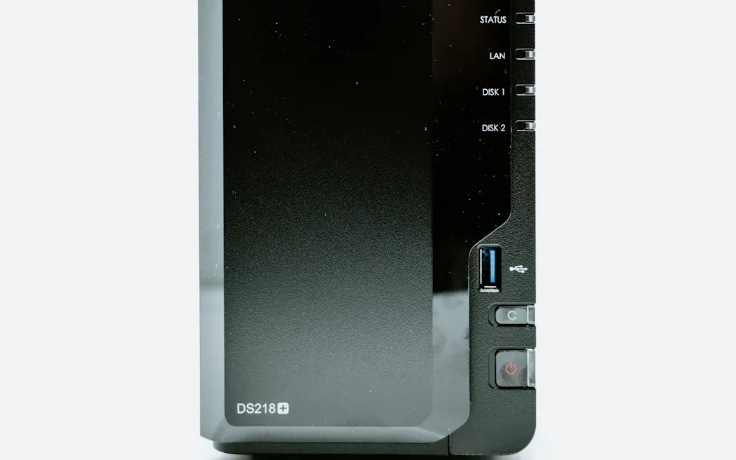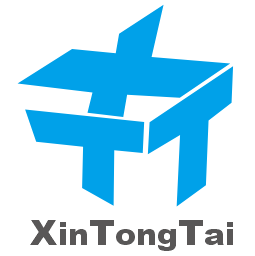What is Storage server?
storage server is a specialized computer system that stores, manages, and provides access to large amounts of data. You rely on these servers to keep your information organized and secure. Today, the global data center storage market has reached over $60 billion, showing just how vital storage servers have become. Many businesses choose solutions from leading brands like XTT, which offer a range of reliable products for different needs.
Storage servers improve data accessibility, support smarter decisions, streamline processes, and protect sensitive information in business environments.
Key Takeaways
· A storage server safely stores and manages large amounts of data, making it easy to access when needed.
· There are three main types of storage servers: NAS for sharing files, SAN for fast and large storage, and DAS for direct, simple storage.
· Good storage servers grow with your needs, work fast, and protect your data with strong security features.
· Choosing the right storage server means understanding your current and future needs, setting a clear budget, and picking a trusted brand like XTT.
· XTT offers reliable, flexible storage solutions with rugged designs and advanced technology to keep your data safe and ready for growth.
Storage Server Basics

Definition
A storage server is a powerful computer that helps you store and access digital data safely and quickly. Unlike regular servers, a storage server focuses on managing your files, keeping them secure, and making sure you can reach them when you need to. You can find these servers in businesses, schools, and even at home.
· A storage server is built for high performance and secure data storage.
· It uses special features like user permissions, encrypted data transfers, and strong firewalls to protect your information.
· Physical security is important, too. Many storage servers stay in guarded rooms with cameras, backup power, and climate controls.
· You can use a storage server in a small office or a large company. It works in networks where only people with the right credentials can access the data.
Tip: Always use strong passwords and keep your storage server updated to protect your data.
Architecture
You can think of a storage server as a team of parts working together to keep your data safe and easy to reach. Each part has a special job:
· Motherboard: Connects all the parts and lets them talk to each other.
· Processor (CPU): Handles instructions and keeps everything running smoothly.
· Memory (RAM): Stores active data so the CPU can get to it fast.
· Storage: Holds your files. This can be hard drives (HDDs), solid-state drives (SSDs), or even cloud storage.
· Connectivity: Network cards and adapters let your storage server connect to other computers and the internet.
· Form Factor: The shape and size of the server, like rack servers for big data centers or smaller cases for offices.
Storage servers use different ways to organize and store data:
· File Storage: Lets you save and share files in folders, like on your home computer.
· Block Storage: Gives you raw storage space, which is great for things like databases that need fast access.
· Object Storage: Stores lots of unstructured data, such as photos or videos, and makes it easy to scale up.
Here is a table showing common storage server architectures you might see in businesses:
Storage Architecture | Description | Key Characteristics and Use Cases |
Direct-Attached Storage (DAS) | Connects directly to a computer. Good for quick access on one machine. | Simple, fast, but not easy to share. Works well for single users or small setups. |
Network-Attached Storage (NAS) | Connects to a network so many users can access files remotely. | Great for sharing files in offices or schools. Supports access control and data protection. |
Storage Area Network (SAN) | Uses a special network for fast, reliable storage across many devices. | Perfect for big companies needing lots of storage for important apps like databases. |
Software-Defined Storage (SDS) | Uses software to manage storage, not just hardware. | Flexible and easy to upgrade. Moves data between different types of storage based on how often you use it. |
Cloud Storage | Stores data online, so you can reach it from anywhere. | Scalable and safe. Good for backups and disaster recovery. Works for both small and large organizations. |
When you choose a storage server, you look at how these parts and architectures fit your needs. You want your data to be safe, easy to access, and ready for the future.
Storage Server Types

When you choose a storage server, you will see three main types: NAS, SAN, and DAS. Each type works best for different needs. The table below shows how they compare:
Aspect | NAS (Network Attached Storage) | SAN (Storage Area Network) | DAS (Direct Attached Storage) |
Storage Type | Shared file storage over a network | Block-level storage on a dedicated network | Direct storage to a single host |
Data Transmission | Uses TCP/IP and Ethernet | Uses Fibre Channel or IP | Uses IDE/SCSI or USB |
Performance | Moderate, good for file sharing | Highest, for demanding applications | High for one user, no network delays |
Scalability | Moderate | Highly scalable | Limited |
Cost | Moderate | Highest | Lowest |
Complexity | Moderate | Most complex | Simple |
Accessibility | Network-wide access | Multiple access paths, high availability | Only for the connected host |
NAS
NAS stands for Network Attached Storage. You use NAS when you want to share files with many people on a network. It is easy to set up and manage. NAS works well for:
· Streaming movies, music, and TV shows to your devices.
· Recording and watching live TV with a DVR.
· Running virtual machines for testing or learning.
· Hosting a website or personal email server.
· Managing downloads and sharing eBooks or comics.
You can use XTT server chassis like the XTT4508E or XTT470 for NAS setups. These models offer strong performance and flexible storage options. XTT motherboards such as the XTT3DE also support NAS builds for both home and business.
SAN
SAN means Storage Area Network. You use SAN when you need fast, reliable storage for big companies. SANs support high-speed data transfer and can grow as your needs change. SANs work best for:
· Running large databases and business apps.
· Supporting virtual machines in data centers.
· Keeping data safe with backups and disaster recovery.
· Ensuring high availability for mission-critical tasks.
XTT offers server chassis like the XTT678V3, which is designed for high-density and AI-focused SAN deployments. XTT motherboards such as the XTT3DGQ provide the power and connectivity needed for SAN environments.
DAS
DAS stands for Direct Attached Storage. You use DAS when you want storage connected directly to one computer. DAS is simple and fast. It is best for:
Description | |
Direct Connection | Connects straight to your computer for low latency. |
Dedicated Resources | Only your system uses the storage. |
Easy Setup | Simple to install and manage. |
Cost-Effective | Lower cost than networked storage. |
DAS works well for local backups, small business servers, or remote offices. XTT rugged computers like the XTT-156JG and server chassis such as the XTT265-12 are great choices for DAS solutions.
Key Features
Scalability
You want your storage server to grow with your needs. Scalability means you can add more storage or power as your data grows. This helps you avoid buying a whole new system every time you need more space. When you plan for scalability, you make your IT setup last longer and work better for your business.
· Start by checking where your system might slow down as you add more data.
· Make sure your storage choices match your business goals.
· Decide if you want to upgrade your current server (vertical scaling) or add more servers (horizontal scaling). Each choice affects cost and speed.
· Use automation to handle tasks as your system grows. This saves time and reduces mistakes.
· Train your team so they can manage bigger systems and keep everything secure.
Tip: A scalable storage server lets you handle more users, more files, and bigger projects without slowing down.
Performance
You need your storage server to work fast and handle lots of data. Good performance means your files open quickly and your apps run smoothly. Several key metrics help you measure how well your storage server performs:
· Storage capacity tells you how much data you can keep.
· Throughput shows how fast your server reads and writes data.
· Input/output operations per second (IOPS) measures how many tasks your server can handle at once.
· Latency tells you how quickly your server responds to requests.
· Hardware reliability, like Mean Time Between Failures (MTBF) and Terabytes Written (TBW), shows how long your server parts last.
A high-performing storage server keeps your business running without delays.
Security
You trust your storage server to keep your data safe. Modern storage servers use many features to protect sensitive information:
· Encrypt data both when stored and when sent over networks.
· Use multifactor authentication to keep accounts secure.
· Set up role-based access so only the right people can make changes.
· Install data loss prevention systems to stop leaks.
· Check permissions often to make sure only trusted users have access.
· Update software and firmware quickly to fix security holes.
· Turn off services you do not need to lower risk.
· Use network security tools to block unwanted access.
· Keep backup copies to protect against hardware failure or attacks.
· Create clear rules for how to store and manage data.
· Teach users about safe data and network practices.
Note: Strong security features help you avoid data loss, leaks, and cyber threats, keeping your business safe.
Storage Server Use Cases
Enterprise
You use a storage server in enterprise settings to keep your business running smoothly. Many companies rely on these servers for important tasks:
· Database backups help protect your critical data and make recovery faster.
· Backup and recovery systems keep your files safe and let you restore them if something goes wrong.
· Disaster recovery plans use storage servers to keep your business working during failures.
· Replication copies your data to different places for better safety and availability.
· Ransomware protection keeps your information safe from cyber threats.
· Web serving lets you host websites and manage lots of visitors.
· Content management helps you organize and share files across your team.
· Storage for containers and serverless apps gives you flexible and scalable options.
XTT offers server chassis like the XTT678V3 and motherboards such as the XTT3DGQ. These products handle high-capacity workloads and work well in rugged environments. You can trust XTT’s rugged computers, like the XTT-156JG, to perform even in harsh conditions.
Tip: Choose a storage server that matches your business needs for speed, safety, and growth.
Personal/SMB
If you run a small business or want a home setup, you need a storage server that is easy to use and reliable. Here are some things to look for:
· A strong motherboard with enough power for your daily tasks.
· At least 16GB of RAM for smooth performance.
· Hard drives with at least 500GB, but 1TB is better for more space.
· Color-coded cables help you manage your drives.
· Rack mount servers with several drives make upgrades simple.
· Quiet cooling fans keep your system running without noise.
· Front USB ports and DVD-R players add convenience.
For software, many people use Linux systems like CentOS or Fedora. You can set up RAID for extra data safety. XTT’s server chassis, such as the XTT4508E, and motherboards like the XTT3DE, fit these needs well. XTT’s rugged computers also work great for small offices or home labs.
Note: Start with what you need now, but pick a storage server that lets you grow in the future.
Choosing a Storage Server
Needs Assessment
You need to start by understanding what you want from your storage server. Think about how much data you have now and how much you expect to have in the future. You should also consider how fast you need to access your files and how many people will use the server at the same time.
When you assess your needs, look at these important points:
· Check the reliability and performance of the provider. Review their service level agreements (SLAs) and uptime records.
· Find out how the provider handles downtime. Good monitoring and reporting tools help you spot problems early.
· Make sure the provider is financially stable. You want a partner who can support you for years.
· Research if the provider has faced legal issues and how they manage them.
· Learn about any planned changes in the company, such as mergers or new owners.
· See if the provider focuses on your type of business and has a strong customer base.
· Look at the management team’s track record for steady leadership.
· Ask about certifications and standards. Customer reviews can also show if the provider delivers on promises.
· Avoid getting locked into one vendor. Choose open standards and clear exit plans.
· Set clear SLAs and contracts so you know what to expect.
Tip: Write down your needs before you shop. This helps you pick the right storage server for your business.
Budget
You need to set a budget before you buy a storage server. Prices can vary a lot based on size, speed, and features. Think about both the upfront cost and the long-term expenses, such as maintenance, upgrades, and power use.
Here are some ways to manage your budget:
· Start with what you need now, but plan for growth.
· Compare the cost of buying versus leasing.
· Look for energy-efficient models to save on power bills.
· Factor in the cost of support and warranties.
· Remember to include backup and security tools in your budget.
A clear budget helps you avoid surprises and keeps your project on track.
Brand Comparison
You have many brands to choose from when picking a storage server. Each brand offers different features, support, and value. XTT stands out for its wide range of products, strong focus on quality, and ability to serve both small and large businesses.
Here is a table to help you compare XTT with other leading brands:
Feature | XTT | Other Leading Brands |
Product Range | Servers, chassis, motherboards, rugged computers, cooling, splitters | Servers, chassis, motherboards |
Rugged Solutions | Yes (e.g., XTT-156JG, xtt-156PAC) | Limited or not available |
Customization | High (tailored for different needs) | Varies |
Global Reach | Serves China, Europe, North America, and more | Global |
Innovation | Regular updates, AI-focused models | Varies |
Support | Dedicated, with strong customer focus | Varies |
Price | Competitive | Varies |
XTT offers rugged computers that work in harsh environments, such as the XTT-156JG. Their server chassis, like the XTT4508E and XTT678V3, support both small offices and large data centers. XTT also provides efficient cooling solutions and network splitters, which help you build a reliable and high-performing system.
Note: When you compare brands, look at product quality, support, and the ability to meet your unique needs. XTT gives you flexibility, innovation, and trusted performance.
You have learned how a storage server helps you manage and protect your data. Each type offers unique features for different needs. When you choose a storage server, you should look for reliability, scalability, and advanced technology. Trusted brands like XTT give you systems with unlimited connectivity, multi-platform support, and the latest storage options. This helps you keep your business data safe and ready for the future.
FAQ
What is the main purpose of a storage server?
You use a storage server to keep your files safe and easy to reach. It helps you store, organize, and share data with others on your network.
How do you choose the right storage server for your needs?
Start by listing your storage needs. Think about how much data you have and how fast you need to access it. Compare features, reliability, and support from trusted brands like XTT.
Can you upgrade your storage server later?
Yes! Many storage servers let you add more drives or memory. You can expand your system as your data grows. Always check if your server supports upgrades before you buy.
What makes XTT storage servers stand out?
· Rugged designs for tough environments
· Wide range of products for different needs
· Strong focus on quality and innovation
You get reliable performance and flexible options with XTT.
